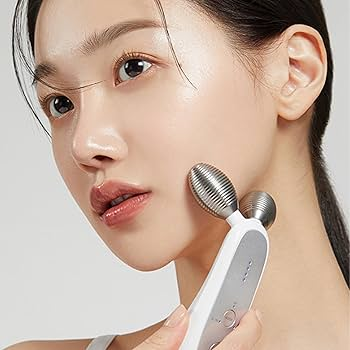Unlocking the Full Potential of Vitamin C
IN THIS ARTICLE
Good morning, skincare enthusiasts! Welcome to But More Importantly. I'm Caolan, your friendly neighborhood skincare expert. Curious about cosmetics, ingredients, beauty industry secrets, and cutting through marketing BS? You're in the right place. For the past two years, we've gathered here every week to explore and learn together, and our community has grown to almost a thousand strong – thank you all for that!
Today, as we kick off 2025, we're diving into the world of Vitamin C. Why the focus on brightness? Well, that's a buzzword the beauty industry loves to throw around when marketing Vitamin C products. But before we delve into the do's and don'ts, let's acknowledge that marketing claims aren't always malicious; brands often face constraints of time, space, and attention, leading them to simplify complex topics like Vitamin C.
There's a dual nature to beauty industry marketing – not necessarily negative, just simplified for consumer comprehension. So, today, we'll discuss the nuances of Vitamin C, separating fact from marketing fiction. Now, onto the do's and don'ts of Vitamin C. While brightening is a primary benefit, it's crucial to understand that Vitamin C isn't a one-size-fits-all solution for radiant skin. If you've been following our journey, you know it's not the sole ingredient for achieving that coveted glow.
Often, I encounter individuals disappointed with their dull skin despite faithfully using Vitamin C. Why the letdown? Turns out, they've placed all their skincare hopes on Vitamin C alone. As I always emphasize, achieving radiant skin is a multi-faceted process that goes beyond Vitamin C. So, buckle up as we navigate through the world of Vitamin C, exploring its true benefits and uncovering the essentials for achieving a vibrant complexion. Let's learn and grow together on this bright skincare journey in 2025!
The Antioxidant Power of Vitamin C
Vitamin C functions as a potent brightening agent by inhibiting tyrosinase, a key enzyme in melanocytes responsible for pigment production during melanogenesis. While there are other tyrosinase inhibitors available, vitamin C stands out for this mechanism and offers additional key benefits. One such benefit is its role as a robust antioxidant. Although not the sole antioxidant on the market, vitamin C effectively safeguards the skin, slowing down the aging process. Acting as a shield against free radical damage caused by factors like sun exposure, stress, and pollution, vitamin C ensures the skin remains youthful and resilient. It complements sunscreen rather than replacing it, enhancing the effectiveness of sun protection.
Collagen Synthesis and Skin Elasticity
The third major advantage of vitamin C lies in its ability to stimulate collagen production and prevent collagen breakdown. It acts as a collagen builder by encouraging collagen synthesis and inhibiting matrix metalloproteinases (MMPs), enzymes responsible for collagen degradation. This dual action promotes collagen longevity, contributing to the overall health and elasticity of the skin. Given these multifaceted benefits, incorporating vitamin C into a skincare routine is crucial. Beyond its brightening properties, vitamin C addresses aging concerns and provides a well-rounded approach to skincare.
Get the Facts
Varieties of Vitamin C in Skincare Products
When using vitamin C, it's essential to recognize that not all forms are equal. The active form, L-ascorbic acid, is commonly found in products like Skinceuticals or Timeless. While highly effective, L-ascorbic acid can be unstable and prone to deterioration. It's crucial to handle it properly and be aware of potential irritations to maximize its benefits without drawbacks.
One common misconception is that it universally irritates the skin. Its acidity, with a typical pH of 3.5, can indeed be bothersome, especially at higher concentrations. The stability of the formulation poses another challenge, as it tends to degrade quickly, necessitating careful protection for optimal skin benefits.
Enter the inactive forms of vitamin C, particularly the ester forms. While designed to address the active form's drawbacks, not all inactive forms are created equal. Conversion in the skin is necessary for their effectiveness, making them gentler but varying in efficacy. Tetrahexyl desyl ascorbate stands out, especially for those with sensitive or acne-prone skin, offering a smoother entry into the world of vitamin C.
As for L-ascorbic acid, the active form, percentage matters. Contrary to the common belief that more is always better, concentrations beyond 20% don't necessarily provide added benefits. In fact, they can be counterproductive, potentially leading to skin irritation. The sweet spot for L-ascorbic acid is within the 10 to 20 percent range. Going "low and slow" is emphasized to avoid inflammation, a detriment to long-term skin health.
A prevalent mistake is relegating vitamin C exclusively to the morning routine. While the association with morning rituals might stem from marketing ties to orange juice, the benefits of vitamin C should not be limited to one part of the day. Using it both morning and night ensures the skin reaps its full spectrum of advantages, promoting a consistent and well-rounded skincare routine.
Dispelling another myth, using vitamin C alongside retinol is not only acceptable but also beneficial. The misconception arose from the irritative nature of L-ascorbic acid and retinol. However, with the knowledge of inactive forms of vitamin C, you can confidently pair vitamin C with retinol for comprehensive skincare benefits. Whether choosing an active form in the morning or an inactive one at night, balance is key to avoid unnecessary product excess.
The Expiration Timeline
Vitamin C, particularly in its active form, is prone to instability. Store it in a cool, dark place, away from direct sunlight, and tightly sealed to prevent deterioration. You can tell it's gone bad when it changes color from light yellow to darker shades. Proper storage is crucial, even for the inactive form, to preserve your investment and maximize its benefits. Developing good habits in handling your skincare products is essential to avoid wasting time, effort, and money. Additionally, be mindful of the expiration date. Vitamin C typically remains effective for six to eight months. If you haven't finished a product within this timeframe, you may not be using it enough to see noticeable results. Consistency is key, and it's essential to recognize that our bodies require time to respond to skincare.
Maximizing Vitamin C Results
To experience the full benefits of vitamin C, commit to using it regularly and consistently for at least six to eight weeks. Results take time, and while we crave instant excellence, our bodies haven't evolved to deliver instant changes. If you're aiming for brightening effects, consider incorporating vitamin C with other compatible active ingredients.
In the world of fast fashion and skincare, patience is key to achieving lasting results. As 2025 kicks off, make sure you follow these do's and don'ts to make the most out of your vitamin C routine. If you have questions or need more information, feel free to ask in the comments below.
About the Author: Caolan
With over a decade of international experience, Caolan's passion lies in simplifying the complex. Now, as the founder of But More Importantly, he applies these talents to the world of cosmetics, aiming to unmask marketing hype and provide readers with the truth about beauty products. His mission: to help you make informed choices and discover what truly enhances your beauty routine.















